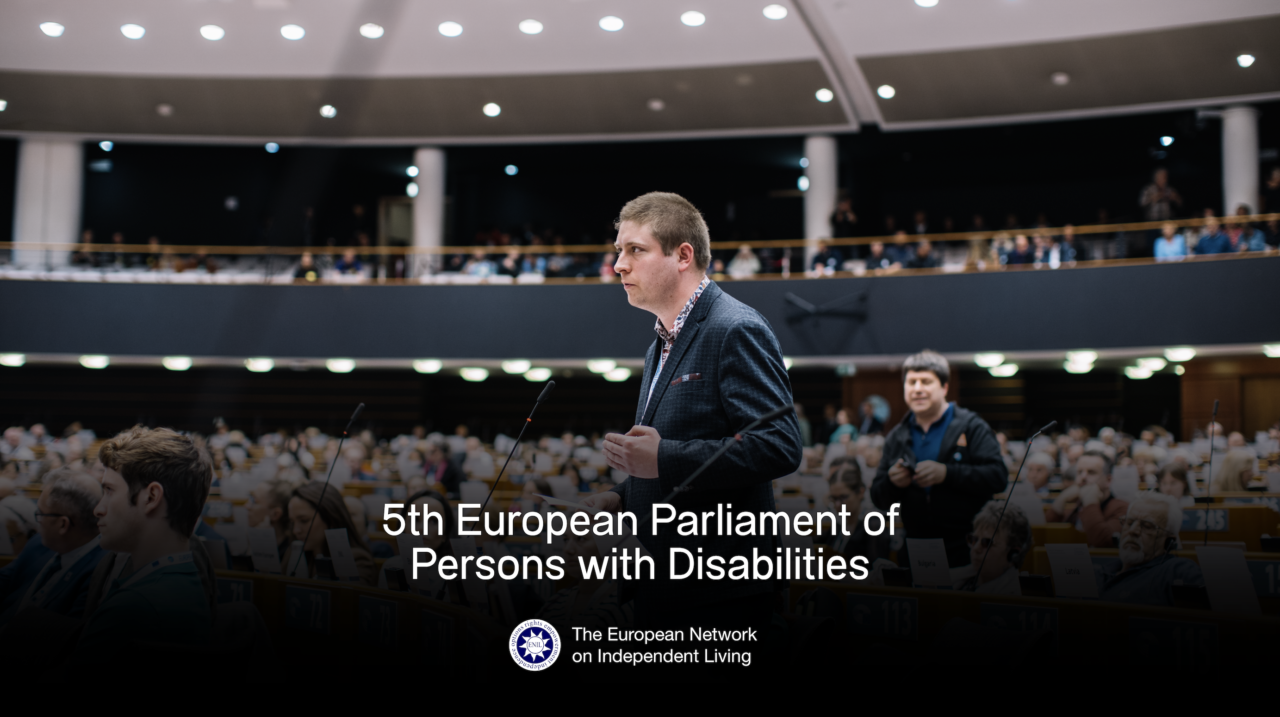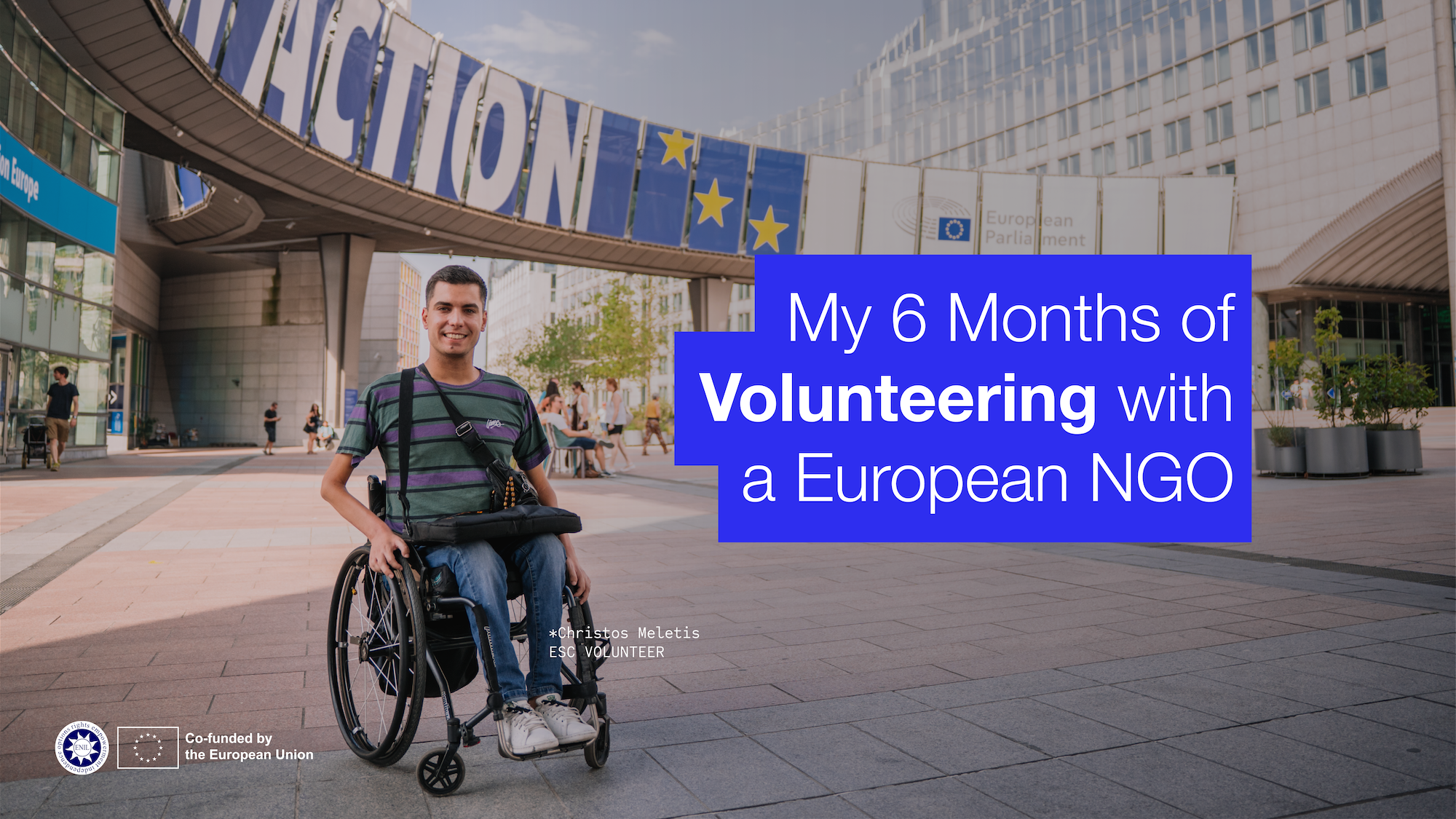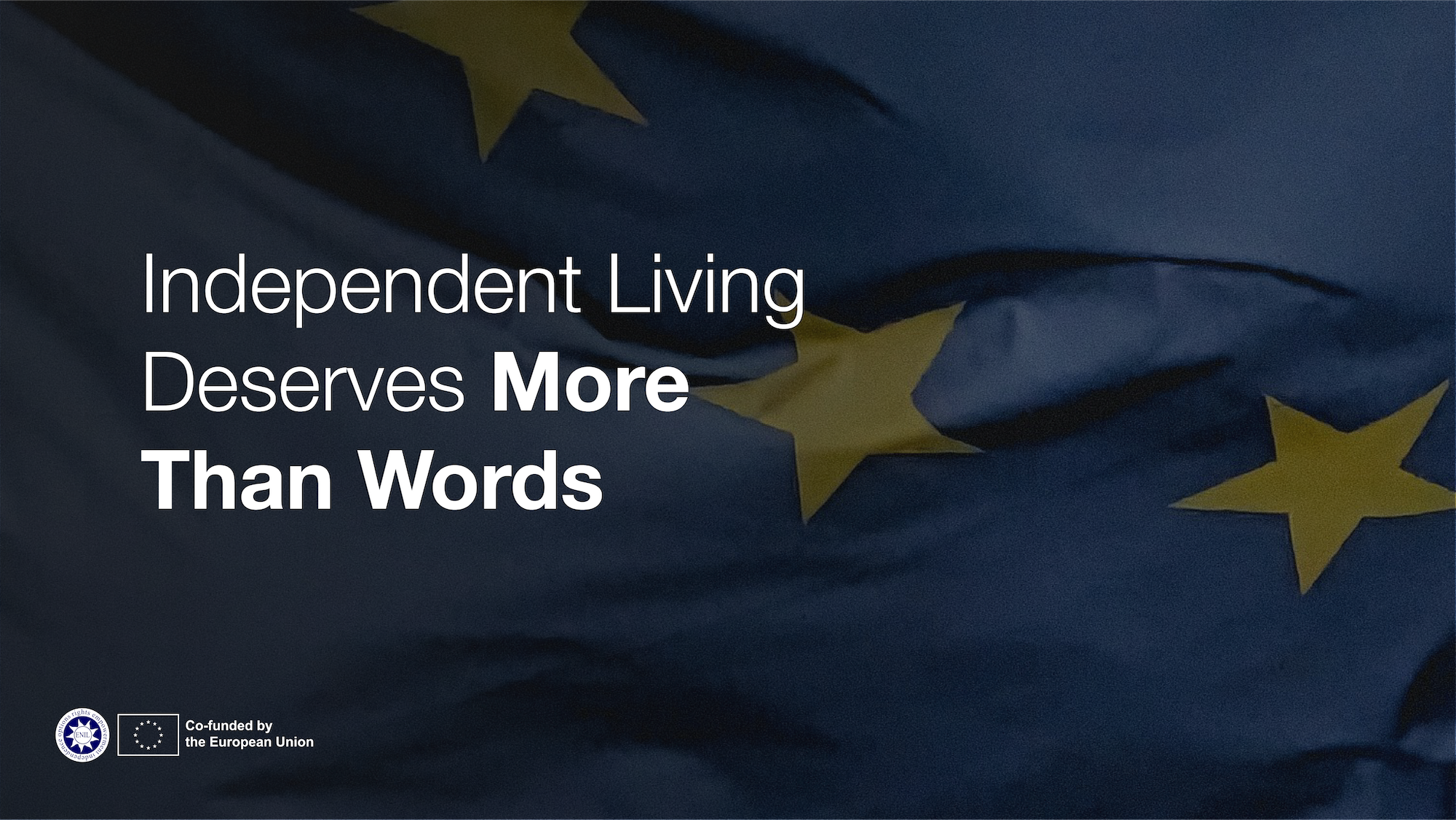Disability activists from all over Europe used the opportunity to highlight the various and persistent barriers faced by disabled people. Decision makers missed the opportunity to present decisive action.
On the 23rd of May the 5th European Parliament for Persons with Disabilities took place in the hemicycle of the European Parliament in Brussels. 700 disabled delegates from most EU member states participated. The programme consisted of three sessions, each dedicated to topics the organisers felt are currently the most relevant to the rights of disabled people.
Session one was dedicated to the right to move freely in Europe, session two to the fight for equal rights and session three to helping people with disabilities in urgent situations. Each session consisted of interventions by a panel and from the audience. The panels were composed of representatives of official bodies such as the European Commission or the European Parliament and disability rights activists. Helena Dalli, European Commissioner for Equality, Emily O´Reilly, European Ombudsman and Yannis Vardakastanis, President of the European Disability Forum featured among the speakers. You can watch the full recording here.
The voices of disabled activists
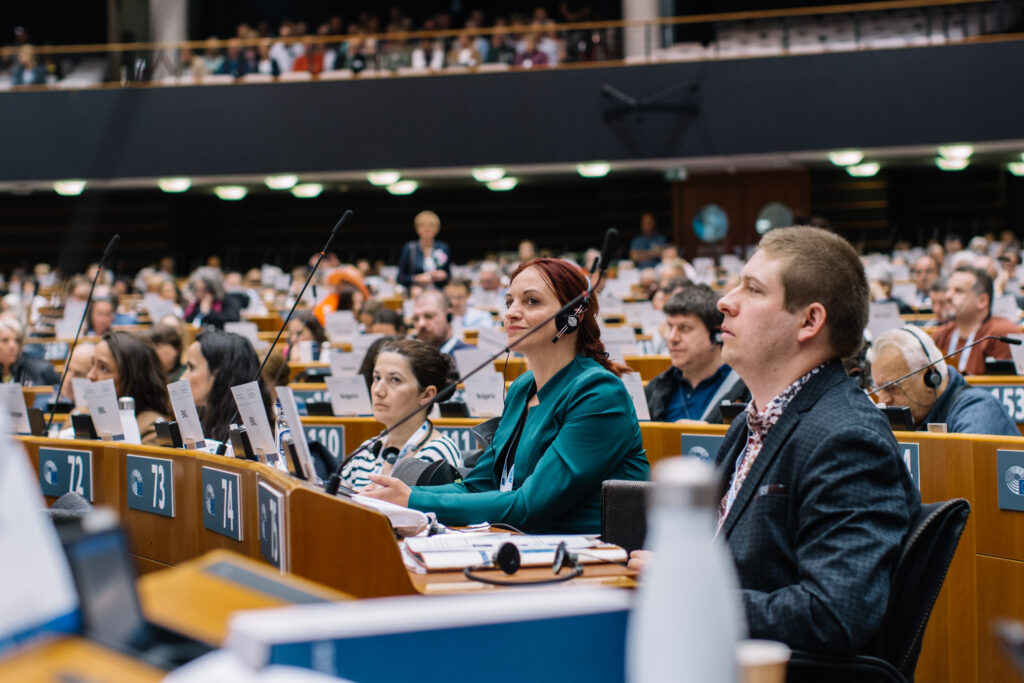
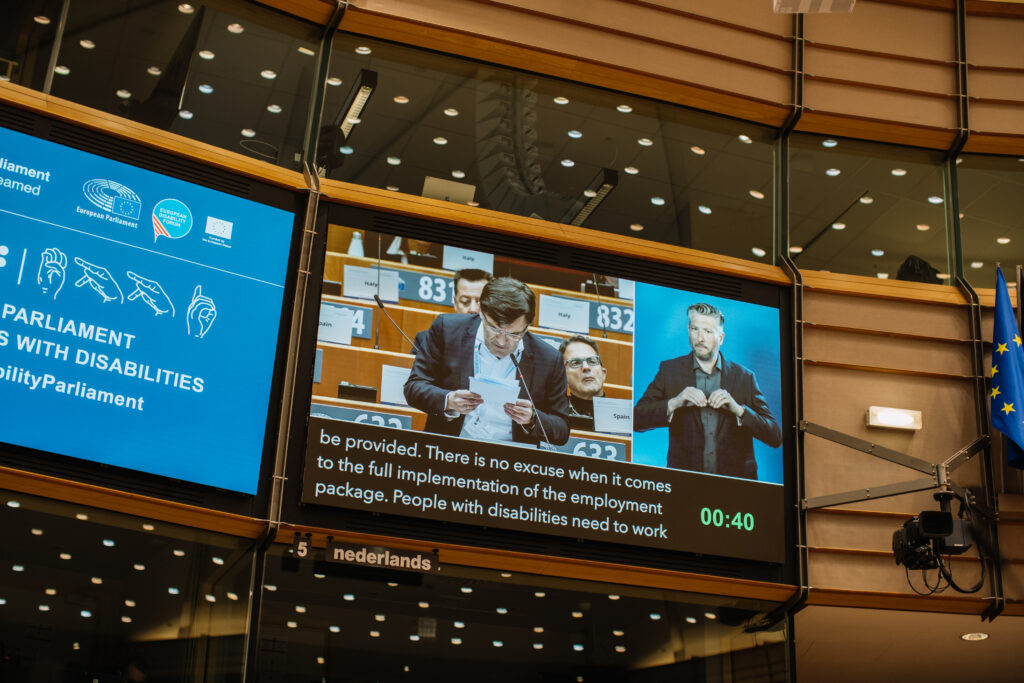
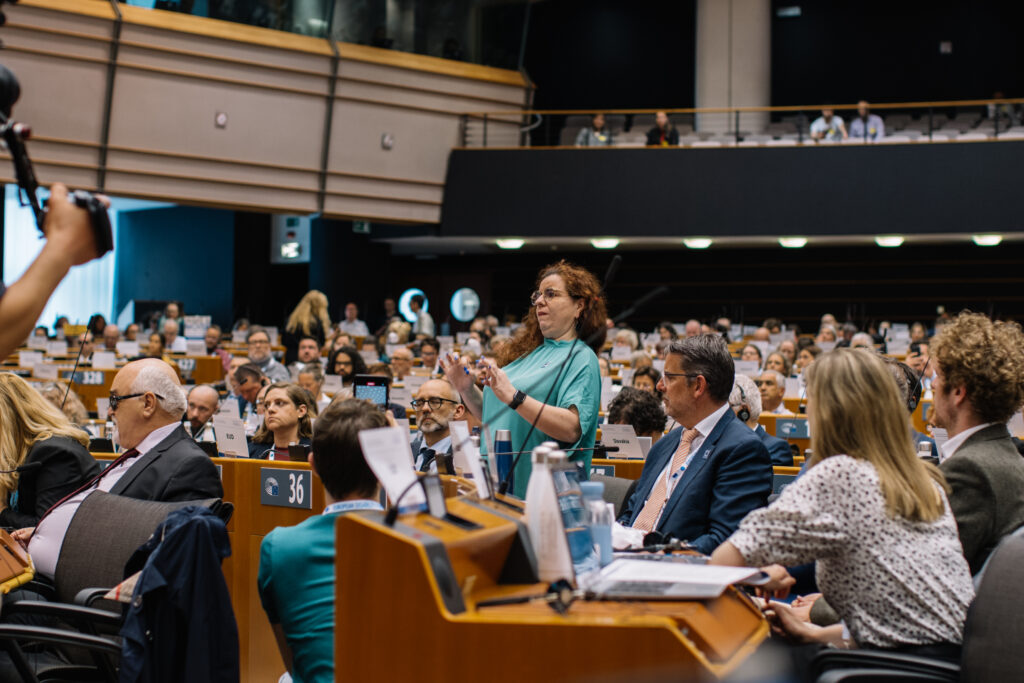
The disability activists on the panel and in the audience highlighted very successfully the various barriers that separate Disabled People from equal participation in society and often relegate them to second class citizens. In his Yannis Vardakastanis highlighted the high risk of abandonment for Disabled People in conflict and disaster areas and also the social hardships caused by the increased costs of living. Tamara Byrne, member of inclusion Europe and a person with an intellectual disability, talked about her struggle to receive an education on an equal level with non-disabled people. Due to the fight of her parents Tamara was admitted to a mainstream school in the area where she lived. With the support of a special needs assistants and her teachers she was able to acquire the same level of knowledge as her non-disabled peers. However, the local government and the school didn´t see her potential and didn´t allow her to receive a qualifying certificate which is why she couldn´t go on to higher education.
The strongest message of the day
The probably strongest message of the day came from the audience, when an activist from Ireland presented a serious hardship, she encountered on her journey to Brussels. Despite having booked assistance and notified the airline in advance that she was a user of a powered wheelchair, staff were utterly unprepared upon her arrival. No preparations were in place to store the wheelchair in the cargo bay and have her board the plane. Staff began a widespread search for tools to take the wheelchair apart, in front of all other passengers, which resulted in a delay of departure of 1 hour and 40 minutes. The captain informed passengers that the reason for the delay was the boarding of a wheelchair user. Since the disabled activist was the only wheelchair user, meant the attention of the whole plane was on her. At some point staff gave up. The wheelchair had to remain in Dublin. At the airport in Brussels, she had to wait in an airport transit chair for two hours until the airport had finished the procedure required for her assistant to collect her with a borrowed wheelchair.
The role of policy makers
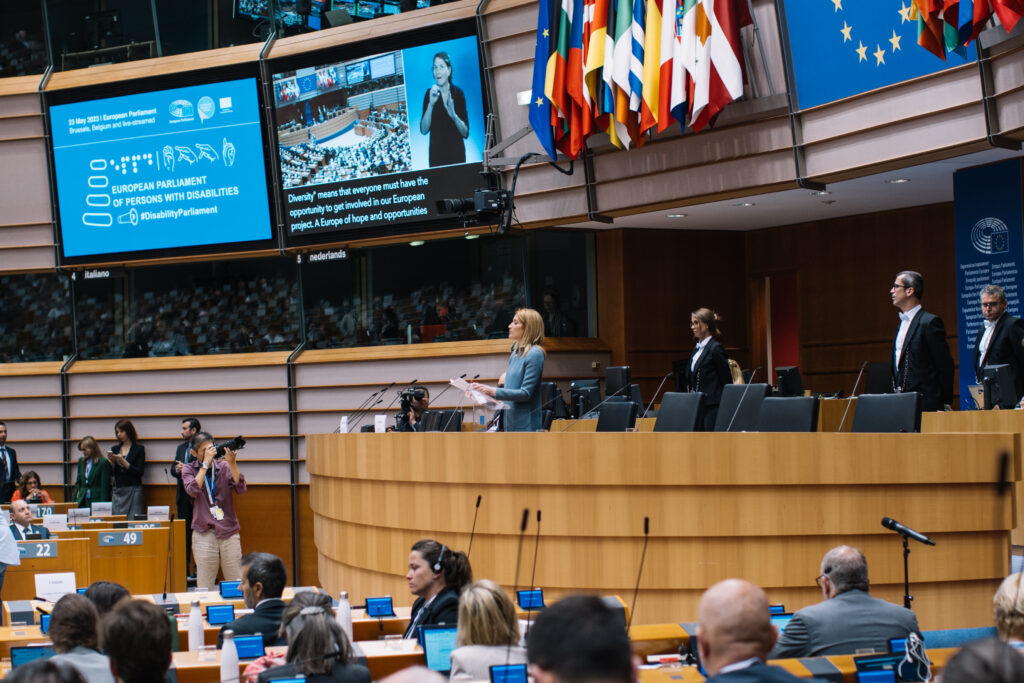
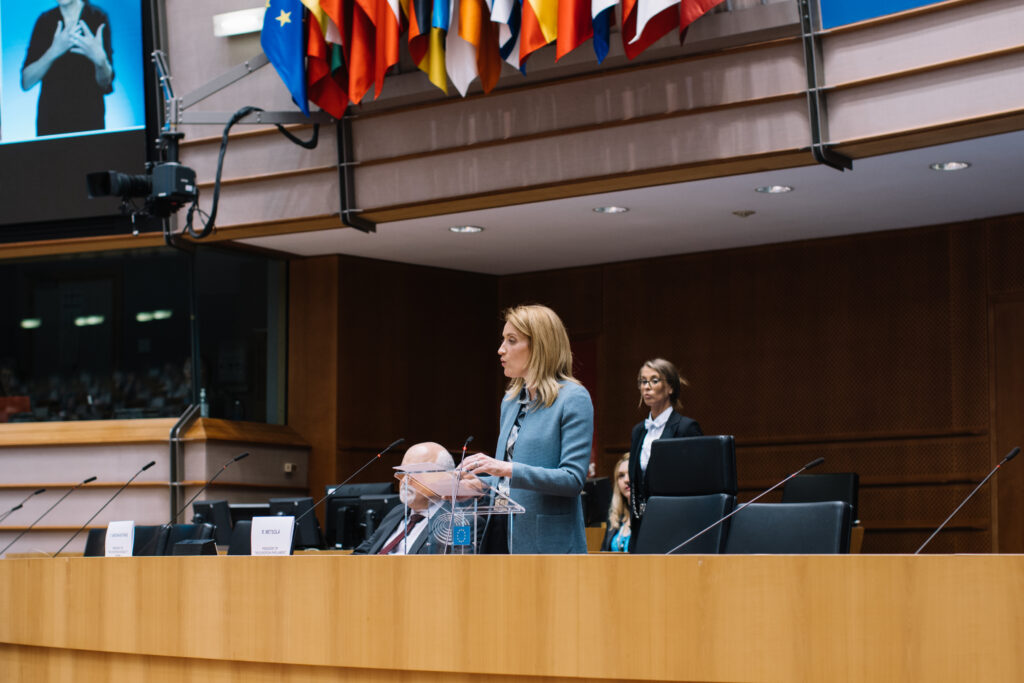
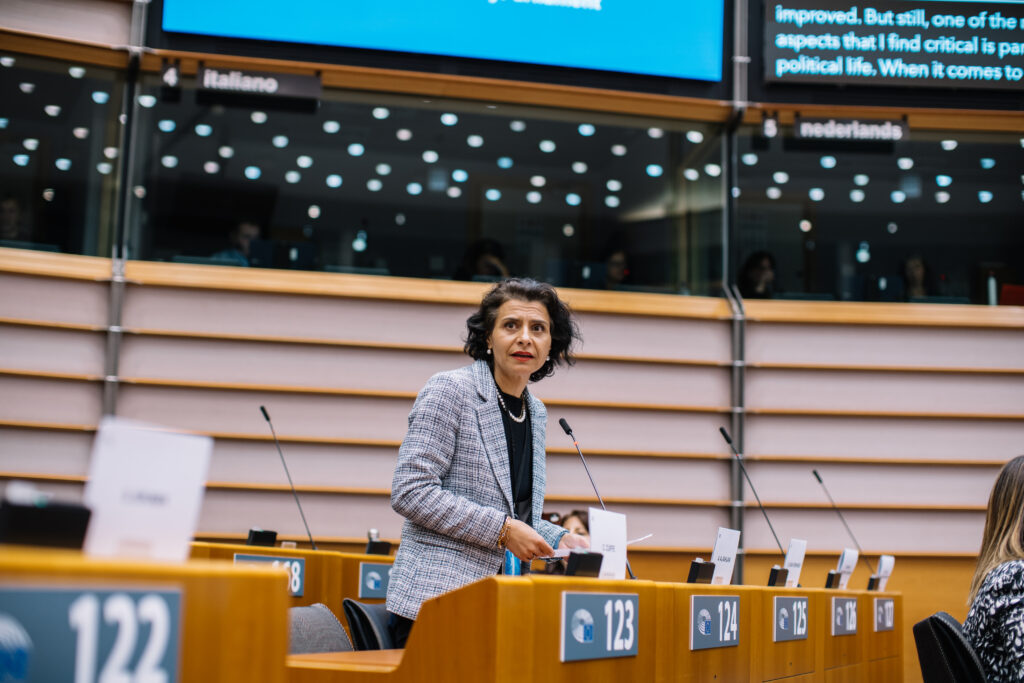
Karine Lalieux, minister in charge of disability within the Belgian federal government, explained her administration had adopted a federal action plan which would make society more inclusive. This would be achieved by creating better coherence within the government. Speaking shortly after the testimony of the activist from Ireland, Lalieux explained that while her government was working continuously for inclusion, there was still a lot of work to be done.
Helena Dalli, European Commission for Equality explained it was her responsibility to listen and to treat the voices of the activists in the room as a call for action. Persons with disabilities had rights. She was hearing a lot about barriers, like finding affordable and accessible housing. The European Commission was supporting Independent Living and that persons with disabilities had a right to Independent Living. Visibly relieved to able to announce a concrete action, Dalli explained that the proposal for the European Disability Card would be tabled in September.
Marc Angel, Vice-President of the European Parliament, explained he was concerned that some Member States might be continuing to use EU funds to finance institutions. He was in favour of deinstitutionalisation and thus against this misuse. Vice-president Angel called on the activists to notify him about possible cases. ENIL is going to follow this recommendation and send a collection of the many complaints admitted to and rejected by the European Commission to his office.
Markus Schäfer, member of the UN Committee on the Rights of Persons with Disabilities, called on the European Union to take the obligations as a state party to the UNCRPD seriously. The convention was legally binding. The timid goals of the European Disability Strategy needed to be overcome.
The EDF manifesto on the European Elections
The assembled activists also adopted the manifesto of the European Disability Forum on the European Elections. The manifesto assembles demands to EU political leaders who are called upon to for example ensure all persons with disabilities have to right to vote and to stand as candidates in the European elections, assess the progress achieved by the European Strategy for the Rights of Persons with Disabilities 2021-2030 or establish a Disability Employment and Skills guarantee.
ENIL board member Elena Kochoska proposed various changed to the draft manifesto which reached us in April, some of which were accepted. The following suggestions were accepted: 1. To involve persons with disabilities in the development of political programmes for the European elections and increase the number of candidates with disabilities. 2. Election authorities must involve representative organisations of persons with disabilities to identify and foster solutions to persistent accessibility issues. 3. Collect disaggregated data on the participation of persons with disabilities as voters and candidates in the European elections. 4. Make available resources and tools, including awareness-raising campaigns, for the effective participation of persons with disabilities and their representative organisations in all their diversity, in EU public affairs, including in the preparation and negotiation of EU laws, initiatives and budgets. 5. mainstream equality in all EU policies, including the next EU budget.
